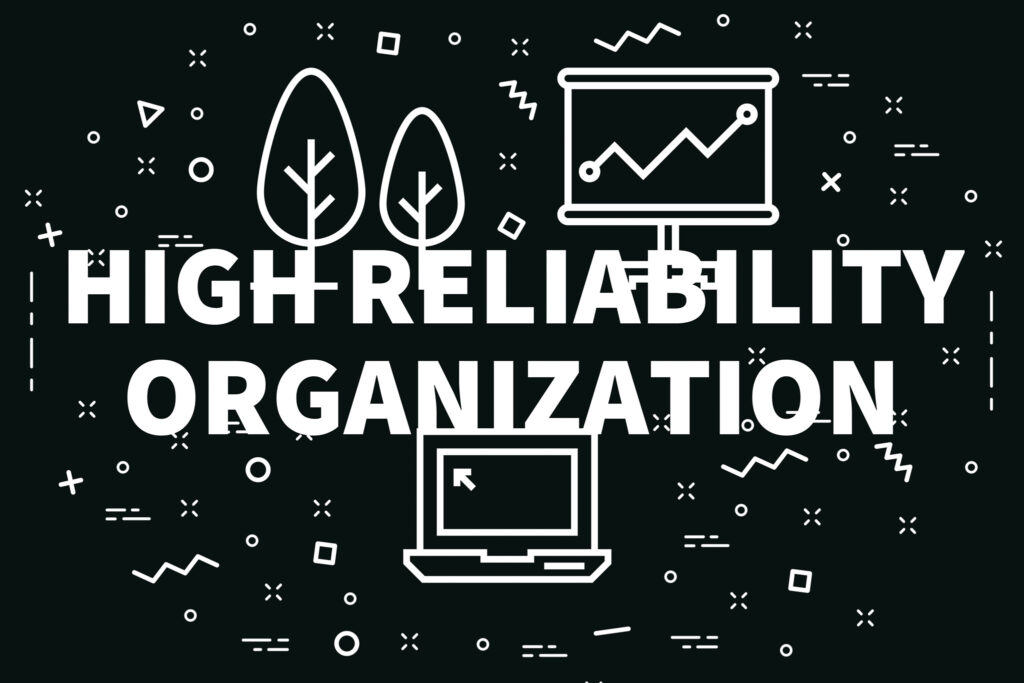
High reliability organizations (HROs) are known for consistently exercising five principles in their daily operations that lead to improved safety, quality, and outcomes. They are:
- Sensitivity to Operations: Maintaining a heightened awareness of how your systems and processes are functioning.
- Reluctance to Simplify: Acknowledging that work is complex and refusing to dismiss or excuse failures without investigation.
- Preoccupation with Failure: Running toward and seeking out knowledge of error or the potential for error, rather than avoiding them.
- Deference to Expertise: Recognizing that staff with the most pertinent knowledge of a problem and how to fix it may not be the most senior team member or have the highest title in the room.
- Commitment to Resiliency: Knowing that failures are going to occur and therefore building systems to respond and recover when they do.
At the core of HROs is a culture of “collective mindfulness,” in which all workers look for and report small problems or unsafe conditions before they pose a substantial risk to the organization and while they are relatively easier to fix. Organizations must have leadership commitment, robust process improvement, and a culture focused on safety in order to drive collective mindfulness and behaviors. Consider your organization’s current activities to determine if you are already on the HRO path.
- Do you hold safety huddles to highlight recognized concerns and develop a plan to address those concerns? This demonstrates Sensitivity to Operations, Preoccupation with Failure, and possibly a Deference to Expertise.
- Do you routinely review your safety data, such as CLABSI rates or medication errors, with other leaders to acknowledge your progress or setbacks in addressing these issues? This demonstrates a Commitment to Resiliency and Reluctance to Simplify.
- Are you conducting leadership rounds to speak with staff directly to learn what is concerning them that may not otherwise reach your attention? This one act demonstrates all of the HRO principles and builds trust with staff by showing them that you are truly committed to leading and living these behaviors. It also provides you with the opportunity to express ideas with frontline teams so that you can all share in the same mental model.
If you are not already participating in these or similar activities within your organization, now is a good time to develop and commit to your HRO strategies. And if you are, do not become content with your progress and lose momentum. As Brian Tracy’s often-quoted phrase states, “Success can lead to complacency, and complacency is the greatest enemy of success.”
Reference:
Weick, K. E., & Sutcliffe, K. M. (2001). Managing the unexpected: Assuring high performance in an age of complexity. Jossey-Bass.
